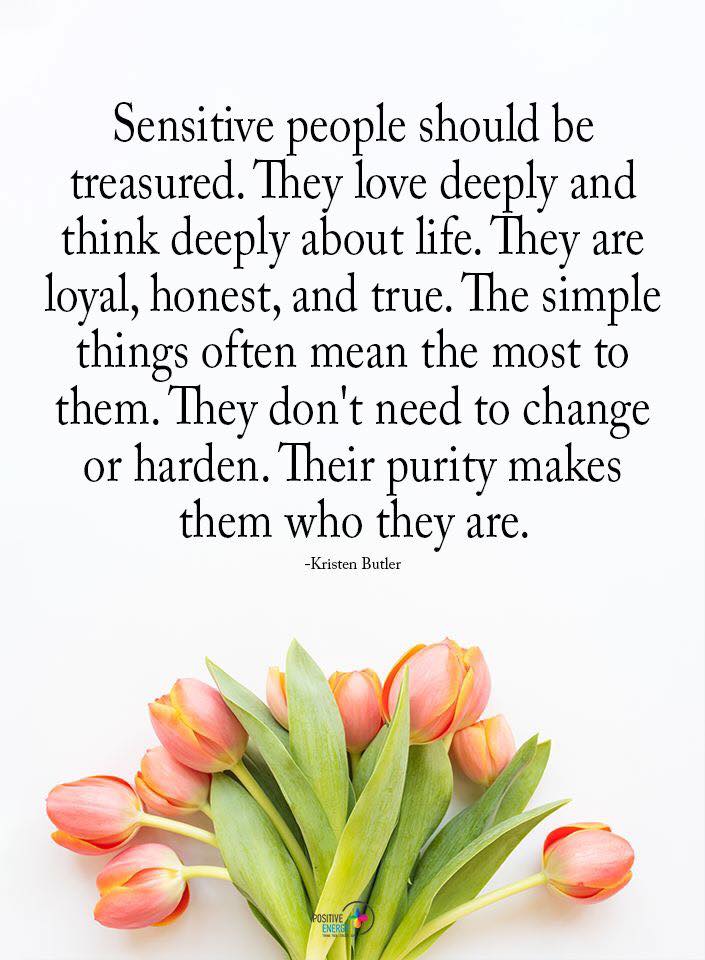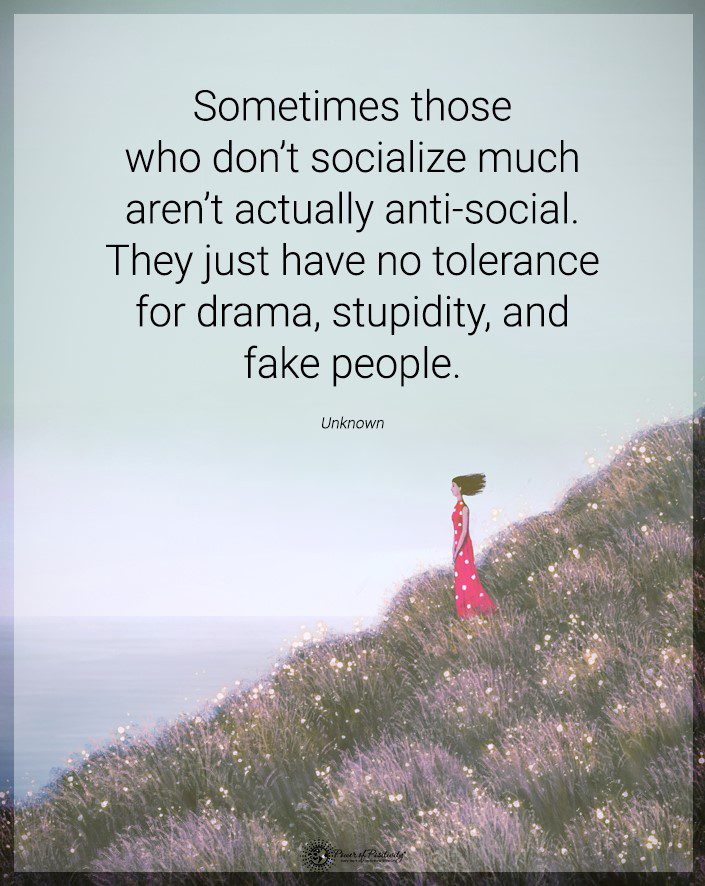Avoid using these words around highly sensitive women.
Positive communication can improve a relationship; conversely, negativity can break it. Especially in interactions with highly sensitive women, we must choose the phrases we use with care and understanding. Sensitive women, often misunderstood, bring a unique and valuable perspective to our lives. Their sensitivity is not a drawback but a gift – a lens through which the world is experienced in vivid, emotional colors. This article aims to foster an environment of empathy and understanding, providing insights into the art of communicating with sensitive women. It’s a journey towards more meaningful and profound connections, where each word is spoken with thoughtfulness, and each response is steeped in compassion.
NOTE: For information about the phrases you should avoid saying to a sensitive man, see the separate article on that topic.
Understanding Sensitivity in a Woman
What does it mean to be a sensitive woman in today’s society? It’s about experiencing the world with an open heart and a deep capacity for emotional response. Sensitive women may feel things more deeply, process emotions more intricately, and react more intensely to the world around them. This sensitivity is often misconstrued, leading to stereotypes that label them overly emotional or weak. However, these stereotypes fail to recognize the profound strength inherent in sensitivity.
Sensitive women often possess heightened empathy, allowing them to connect with others deeply and emotionally. They tend to understand complex emotional landscapes that others might overlook intuitively. Their sensitivity also fosters a rich inner life with a capacity for deep reflection and introspection.
However, society sometimes views sensitivity through a lens of misconception. Sensitive women are often unjustly perceived as being too emotional as if their emotional depth is a flaw rather than a facet of their character. It’s time to dismantle these misconceptions and celebrate the positive attributes of sensitivity. Recognizing and valuing the qualities of sensitive women is not just about fostering personal growth; it’s about enriching our collective human experience. In the following sections, we will explore the power of words in our interactions with sensitive women and how we can communicate with empathy and respect.
The Power of the Phrases We Choose
The power of language in our interactions, particularly with sensitive individuals, cannot be overstated. Words are more than mere syllables; they carry our thoughts, emotions, and intentions. In the realm of sensitive women, words can act like sunlight on a flower or frost on a bud—they have the power to uplift or harm.
Understanding the weight of our words is crucial. Each phrase we utter can resonate deeply with a sensitive woman, influencing her momentary feelings and overall emotional health. When words are chosen without care, they can unintentionally cause distress or misunderstanding. Conversely, thoughtful, kind words can provide support, understanding, and comfort. They can be a balm to anxiety and a boost to self-esteem.
The consequences of not choosing our words carefully can be significant. In relationships, insensitive or thoughtless language can create rifts and foster feelings of isolation or misapprehension. It can cause a breakdown of communication and trust. Sensitive individuals often ruminate more on negative interactions, meaning a poorly chosen word can linger in their minds, affecting their mood and perception of the relationship.
Conversely, using language that is empathetic and supportive can strengthen the bonds we share. It creates trust and openness, encouraging honest and heartfelt communication. In relationships with sensitive women, where emotions run deep and understanding is paramount, the right words can bridge gaps and deepen connections.
Language, therefore, is not just a tool for conversation but a key component in maintaining emotional health and building strong, resilient relationships. The influence of our words extends beyond the immediate moment; it shapes the emotional landscape of our relationships. Recognizing this power transforms communication from a mundane activity into an opportunity for growth, connection, and mutual understanding.
Twenty Phrases to Avoid Around a Sensitive Woman…and Why
Let’s be fair – even women with thicker skin will feel upset about some of these.
1 – “You’re Just Being Hormonal”
This phrase is dismissive and reduces a woman’s feelings to mere biological reactions, completely overlooking the validity of her emotions. It can make a sensitive woman feel as though her feelings are not taken seriously and are merely a byproduct of her gender. That can lead to a place of frustration and being misunderstood.
2 – “Calm Down, It’s Not That Big of a Deal”
Telling a sensitive woman to calm down can feel patronizing and invalidating. It implies that her concerns are not important or overblown. This minimization of her feelings can cause emotional distress and make her feel isolated or belittled.
3 – “You’re Being Overly Emotional”
Labeling a woman’s emotional response as excessive dismisses her right to feel deeply. It creates an environment where she may feel she has to suppress her emotions, leading to a lack of genuine expression and possible emotional repression.
4 – “Don’t Be So Dramatic”
This phrase implies that a sensitive woman’s emotional expression is an overreaction or a performance, which can be hurtful and demeaning. It undermines her feelings and suggests that her natural emotional response is something to be ashamed of.
5 – “You’re Overthinking This”
While it’s intended to be reassuring, telling a sensitive woman that she’s overthinking can make her feel undervalued and dismissed. It invalidates her thought process and can make her second-guess her intuition and judgment.
6 – “You Should Smile More”
This unsolicited advice implies that a woman’s appearance or demeanor is more important than her feelings. It can feel objectifying and dismissive of whatever emotions she might be experiencing.
7 – “You’re Acting Crazy”
This phrase is both stigmatizing and insensitive. It not only invalidates a woman’s feelings but also associates emotional expression with mental instability. This can be incredibly damaging to her self-esteem and emotional well-being.
8 – “You’re Too Sensitive”
Telling a woman she’s too sensitive negates her feelings and suggests that her emotional responses are weak. This can create emotions of inadequacy and discourage her from expressing her emotions openly.
9 – “Stop Taking Everything So Personally”
This phrase implies that a woman’s emotional responses are a choice, and she cannot be affected. It disregards the depth of her feelings and can make her feel she’s at fault for reacting humanly.
10 – “You’re Just Seeking Attention”
Accusing a sensitive woman of seeking attention invalidates her feelings and experiences. It suggests that her emotional expression is not genuine but a ploy for sympathy or attention, which can be deeply hurtful and damaging to her sense of self.
11 – “You Need to Be Stronger”
This phrase can put undue pressure on a sensitive woman, suggesting her current emotional state is a sign of weakness. It undermines the idea that being emotionally open and receptive is a form of strength, not weakness, and can make her feel inadequate for having natural emotional responses.
12 – “Stop Being So Needy”
Labeling a woman as needy for expressing her emotional needs is dismissive and hurtful. It can make her feel guilty for having and expressing these needs, leading to a reluctance to share her feelings in the future, which can harm her emotional well-being.
13 – “You Look Tired, Are You Okay?”
While often coming from a place of concern, this comment can be perceived as an implication that she must always appear happy and put-together. It can make a sensitive woman feel self-conscious about her appearance and add pressure to mask her true feelings.
14 – “You Always Jump to Conclusions”
This statement can make a sensitive woman feel judged for her thoughts and emotional reactions. It implies a lack of trust in her ability to assess situations, which can lead to self-doubt and a lack of confidence in her judgment.
15 – “You’re Not Like Other Girls”
While it may be intended as a compliment, this phrase can be quite divisive and implies that other women are less desirable or worthy. It can also put pressure on a sensitive woman to meet certain expectations or standards based on a generalized and often inaccurate perception of women.
16 – “Just Let It Go”
Telling a sensitive woman to let go of her feelings can be dismissive and invalidating. It undermines her experience and the time she needs to process her emotions, implying that her feelings are not important or worthy of attention.
17 – “You Don’t Look Like You’re in a Bad Mood”
This statement implies that emotional states must have a visible outward expression. It dismisses the internal experience of a sensitive woman and suggests that unless her emotions are outwardly obvious, they are not genuine or valid.
18 – “You Should Have Thicker Skin”
Suggesting that a sensitive woman should be less reactive or more immune to emotional hurt is dismissive of her innate temperament. It can cause feelings of inadequacy. But it also causes the unhealthy notion that she should suppress her natural emotional responses.
19 – “Stop Crying Over Spilled Milk”
Minimizing a woman’s concerns as trivial or unworthy of upset is invalidating and insensitive. It implies that her emotional reaction is disproportionate to the situation without acknowledging her personal feelings or perspective.
20 – “You’re Making a Mountain Out of a Molehill”
This phrase trivializes a sensitive woman’s concerns and feelings, suggesting that her reaction is exaggerated or unnecessary. It can make her feel misunderstood and dismissed, leading to a reluctance to share or address what’s truly bothering her.
Having Positive Communication With a Sensitive Woman
Navigating communication with a sensitive woman requires an understanding heart and a mindful approach. Here are some practical tips for effective communication:
- Practice Active Listening: Attention involves more than just hearing words. It’s about fully engaging with what she is saying, understanding her perspective, and responding thoughtfully. Show that you value her words and feelings.
- Demonstrate Empathy: Put yourself in her shoes. Try to understand her emotions and respond with compassion. Empathy bridges the gap between different perspectives and creates a safe space for open communication.
- Use Validating Language: Acknowledge and validate her feelings. Phrases like “I understand why you feel that way” or “Your feelings are completely valid” can be incredibly affirming. Validation shows that you respect and accept her emotional experience.
- Encourage Nurturing and Positive Language: Communication thrives in a positive environment. Use words that uplift and support. Encouragement and kindness can bolster her confidence and strengthen your bond.
Final Thoughts on the Phrases You Should Not Say to a Sensitive Woman
This article has covered the importance of mindful communication with sensitive women. We’ve discussed the phrases that can hurt and why they are damaging. But more importantly, we’ve discovered how to foster positive and empathetic dialogue.
As we wrap up, remember the key points: active listening, empathy, validation, and nurturing language. These are communication techniques and pathways to deeper understanding and stronger connections.
With their profound capacity for feeling and empathy, sensitive women bring a unique depth to our lives. Their sensitivity is a strength, a sign of emotional intelligence and insight. Let us celebrate this, encouraging a world where sensitivity is accepted and revered.
By practicing mindful and empathetic communication, we don’t just avoid causing harm; we actively contribute to a more understanding, compassionate world. Let’s embrace the beauty and strength of sensitivity and continue to foster connections that honor and uplift it.


















